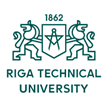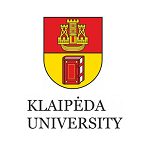SYSTEMATIC LITERATURE REVIEW ON AGENTIC ENGAGEMENT: CLARIFYING A CO-CREATION PERSPECTIVE
Last modified: 11.03.2022
Abstract
Co-creation of learning has been conceptualised as a learner-centred pedagogical approach with implications for students’ proactivity, metacognitive, and collaborative involvement. Due to the complexity of the concept, it is difficult to distinguish and measure in practice, with studies reporting measures for co-creative practices mostly in the context of higher education. This paper reviews the literature on student agentic engagement in Web of Science, ERIC and Scopus, providing links to the existing views on learning co-creation at schools. The research instruments developed for studying agentic engagement and autonomy support are discussed in connection to examining co-creation at the secondary education level.
Keywords
References
Bandura, A. (2006). Toward a psychology of human agency. Perspectives on Psychological Science, 1(2), 164–180.
Bovill, C. (2020). Co-creation in learning and teaching: The case for a whole-class approach in higher education. Higher Education, 79(6), 1023–1037. DOI: https://doi.org/10.1007/s10734-019-00453-w
Bovill, C., Cook-Sather, A., Felten, P., Millard, L., & Moore-Cherry, N. (2016). Addressing potential challenges in co-creating learning and teaching: Overcoming resistance, navigating institutional norms and ensuring inclusivity in student-staff partnerships. Higher Education, 71(2), 195–208.
Christenson, S. L., Reschly, A. L., & Wylie, C. (Eds.). (2012). Handbook of Research on Student Engagement. Springer US. DOI: https://doi.org/10.1007/978-1-4614-2018-7
Cohen, R., Moed, A., Shoshani, A., Roth, G., & Kanat-Maymon, Y. (2020). Teachers’ conditional regard and students’ need satisfaction and agentic engagement: A multilevel motivation mediation model. Journal of Youth and Adolescence, 49(4), 790–803. DOI: https://doi.org/10.1007/s10964-019-01114-y
Fraile, J., Panadero, E., & Pardo, R. (2017). Co-creating rubrics: The effects on self-regulated learning, self-efficacy and performance of establishing assessment criteria with students. Studies in Educational Evaluation, 53, 69–76. DOI: 10.1016/j.stueduc.2017.03.003
Henry, A., & Thorsen, C. (2020). Disaffection and agentic engagement: ‘Redesigning’ activities to enable authentic self-expression. Language Teaching Research, 24(4), 456–475. DOI: https://doi.org/10.1177/1362168818795976
Kaminskiene, L., & Khetsuriani, N. (2019). Co-creation of learning as an engaging practice. Society. Integration. Education. Proceedings of the International Scientific Conference, 2, 191–199.
Kaminskienė, L., Žydžiūnaitė, V., Jurgilė, V., Ponomarenko, T. (2020). Co-creation of Learning: A Concept Analysis. European Journal of Contemporary Education, 9(2), 337–349. DOI: https://doi.org/10.13187/ejced.2020.2.337
Kurt, U., & Tas, Y. (2018). The relationships between parental involvement, students’ basic psychological needs and students’ engagement in science: A path analysis. Journal of Education in Science, Environment and Health, 4(2), 183–192.
Lin, T. (2021). High school students’ epistemic knowledge profiles and their multifaceted learning engagement in science. Research in Science & Technological Education. DOI: https://doi.org/10.1080/02635143.2021.1985446
Lin, T. (2021b). Multi-dimensional explorations into the relationships between high school students’ science learning self-efficacy and engagement. International Journal of Science Education, 43(8), 1193–1207. DOI: https://doi.org/10.1080/09500693.2021.1904523
Mameli, C., & Passini, S. (2017). Measuring four-dimensional engagement in school: A validation of the student engagement scale and of the agentic engagement scale. TPM - Testing, Psychometrics, Methodology in Applied Psychology, 24(4), 527–541. DOI: https://doi.org/10.4473/TPM24.4.4
Mameli, C., & Passini, S. (2019). Development and validation of an enlarged version of the student agentic engagement scale. Journal of Psychoeducational Assessment, 37(4), 450–463. DOI: https://doi.org/10.1177/0734282918757849
Mameli, C., Molinari, L., & Passini, S. (2019). Agency and responsibility in adolescent students: A challenge for the societies of tomorrow. British Journal of Educational Psychology, 89(1), 41–56. DOI: https://doi.org/10.1111/bjep.12215
Maralani, F., Shalbaf, A., & Lavasani, M. (2018). Agentic engagement and test anxiety: the mediatory role of the basic psychological needs. Sage Open, 8(2). DOI: https://doi.org/10.1177/2158244018772884
Meinking, K.A., & Hall, E.E. (2020). Co-creation in the classroom: challenge, community, and collaboration. College Teaching, 68(4), 189–198. DOI: https://doi.org/10.1080/87567555.2020.1786349
Michou, A., Altan, S., Mouratidis, A., Reeve, J., & Malmberg, L. (2021). Week-to-week interplay between teachers’ motivating style and students’ engagement. Journal of Experimental Education. DOI: https://doi.org/10.1080/00220973.2021.1897774
Molinari, L., & Mameli, C. (2018). Basic psychological needs and school engagement: A focus on justice and agency. Social Psychology of Education, 21(1), 157–172. DOI: https://doi.org/10.1007/s11218-017-9410-1
Panadero, E., Klug, J., & Järvelä, S. (2016). Third wave of measurement in the self-regulated learning field: When measurement and intervention come hand in hand. Scandinavian Journal of Educational Research, 60(6), 723–735.
DOI: https://doi.org/10.1080/00313831.2015.1066436
Patall, E., Pituch, K., Steingut, R., Vasquez, A., Yates, N., & Kennedy, A. (2019). Agency and high school science students’ motivation, engagement, and classroom support experiences. Journal of Applied Developmental Psychology, 62, 77–92. DOI: https://doi.org/10.1016/j.appdev.2019.01.004
Patall, E., Vasquez, A., Steingut, R., Trimble, S., & Pituch, K. (2016). Daily interest, engagement, and autonomy support in the high school science classroom. Contemporary Educational Psychology, 46, 180–194.
DOI: https://doi.org/10.1016/j.cedpsych.2016.06.002
Pineda-Baez, C., Manzuoli, C., & Sanchez, A. (2019). Supporting student cognitive and agentic engagement: Students’ voices. International Journal of Educational Research, 96, 81–90. DOI: https://doi.org/10.1016/j.ijer.2019.06.005
Reeve, J. (2012). A self-determination theory perspective on student engagement. In S. L. Christenson, A. L. Reschly, & C. Wylie (Eds.), Handbook of Research on Student Engagement (pp. 149–172). Springer US.
DOI: https://doi.org/10.1007/978-1-4614-2018-7
Reeve, J. (2013). How students create motivationally supportive learning environments for themselves: The concept of agentic engagement. Journal of Educational Psychology, 105(3), 579–595. DOI: https://doi.org/10.1037/a0032690
Reeve, J. (2015). Giving and summoning autonomy support in hierarchical relationships. Social and Personality Psychology Compass, 9(8), 406–418. DOI: https://doi.org/10.1111/spc3.12189
Reeve, J., & Tseng, C.-M. (2011). Agency as a fourth aspect of students’ engagement during learning activities. Contemporary Educational Psychology, 36(4), 257–267. DOI: https://doi.org/10.1016/j.cedpsych.2011.05.002
Reeve, J., Cheon, S., & Yu, T. (2020). An autonomy-supportive intervention to develop students’ resilience by boosting agentic engagement. International Journal of Behavioral Development, 44(4), 325–338. DOI: https://doi.org/10.1177/0165025420911103
Ryan, R.M., & Deci, E.L. (2017). Self-determination theory: Basic psychological needs in motivation development and wellness. Guilford Press.
Schunk, D.H. (2012). Social cognitive theory. In K.R. Harris, S. Graham, T. Urdan, C.B. McCormick, G.M. Sinatra, & J. Sweller (Eds.), APA educational psychology handbook, Vol 1: Theories, constructs, and critical issues. (pp. 101–123). American Psychological Association. DOI: https://doi.org/10.1037/13273-005
Sokmen, Y. (2021). The role of self-efficacy in the relationship between the learning environment and student engagement. Educational Studies, 47(1), 19–37. DOI: https://doi.org/10.1080/03055698.2019.1665986
Tas, Y. (2016). The contribution of perceived classroom learning environment and motivation to student engagement in science. European Journal of Psychology of Education, 31(4), 557–577. DOI: https://doi.org/10.1007/s10212-016-0303-z
Ucar, F., & Sungur, S. (2017). The role of perceived classroom goal structures, self-efficacy, and engagement in student science achievement. Research in Science & Technological Education, 35(2), 149–168. DOI: https://doi.org/10.1080/02635143.2017.1278684
Ucar, F., & Sungur, S. (2018). Adaptation of engagement questionnaire to Turkish for science classes: Validity and reliability study. Elementary Education Online, 17(3), 1691–1705. DOI: https://doi.org/10.17051/ilkonline.2018.466419
Veiga, F., Garcia, F., Reeve, J., Wentzel, K., & Garcia, O. (2015). When adolescents with high self-concept lose their engagement in school. Revista de Psicodidactica, 20(2), 305–320. https://doi.org/10.1387/RevPsicodidact.12671
Wan Mazwati, W. (2018). The impact of philosophical inquiry method on classroom engagement and reasoning skills of low achievers. Journal of Curriculum and Teaching, 7(1), 135–146.
Zawacki-Richter, O., Kerres, M., Bedenlier, S., Bond, M., & Buntins, K. (2020). Systematic Reviews in Educational Research. Wiesbaden: Springer VS.
Zhang, D., Bobis, J., Wu, X., & Cui, Y. (2020). The effects of an autonomy-supportive teaching intervention on Chinese physics students and their teacher. Research in Science Education, 50(2), 645–671. https://doi.org/10.1007/s11165-018-9706-y








